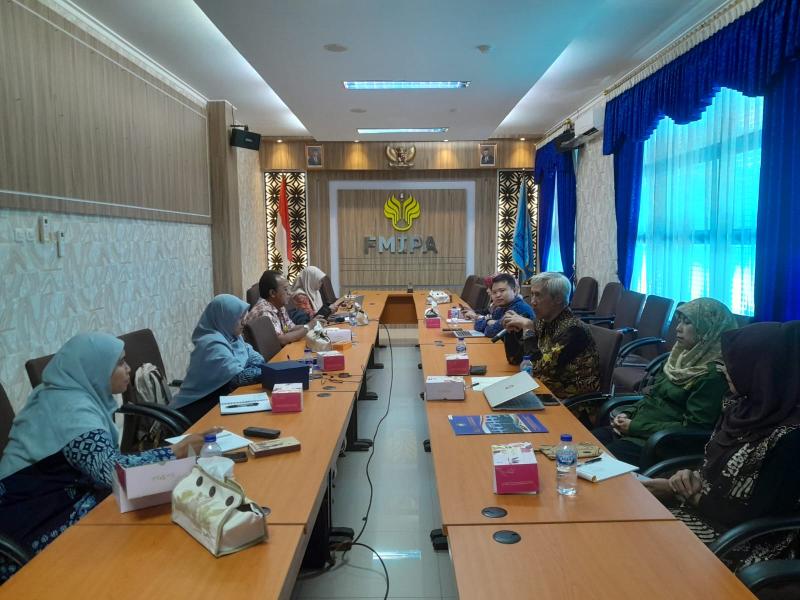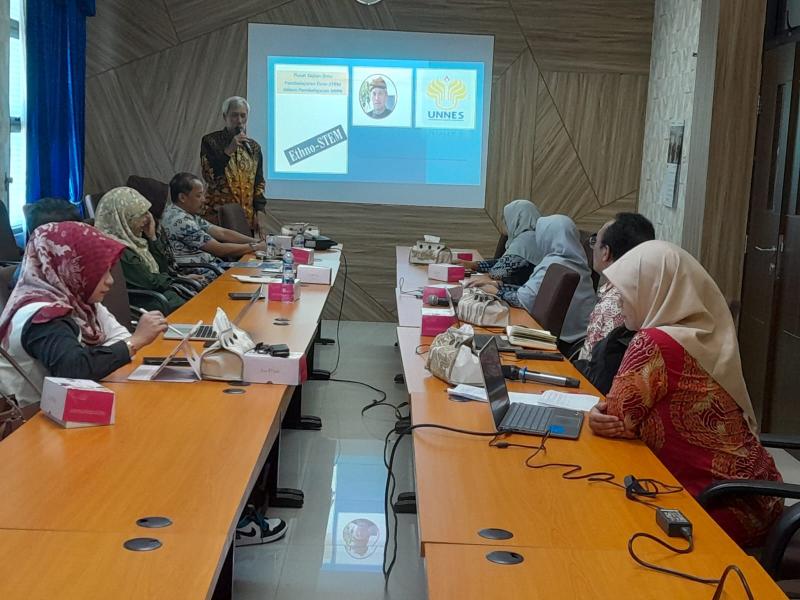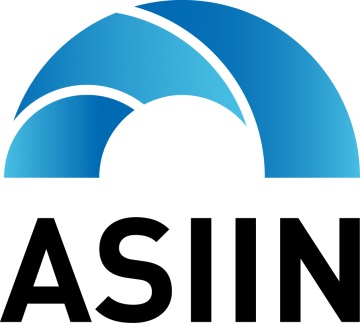 English
English Bahasa Indonesia
Bahasa Indonesia
You are here
Innovation and Educational Collaboration between UNY and UNNES in the Era of Merdeka Belajar
Primary tabs

On June 26, 2024, the Undergraduate Science Education Program of Universitas Negeri Yogyakarta (UNY) conducted an initial collaboration visit with the Ethno STEM Study Center at Universitas Negeri Semarang (UNNES). The UNY team consisted of Purwanti Widhy H, M.Pd, Dr. Maryati, M.Si., M.Pd, and Dita Puji Rahayu. The visit was attended by various parties, including the Vice Dean III of FMIPA UNNES for Business, Research, and Cooperation, Prof. Dr. Sutikno MT, and the FMIPA UNNES Cooperation Team represented by Dr. Triastuti Sulistyaningsih, M. Si. The event also involved intensive discussions with the Head of the Ethno STEAM Study Center at UNNES, Prof. Sudarmin, M.Si., the Coordinator of the Undergraduate Science Education Program at UNNES, Prasetyo Listiaji, S.Pd., M.Sc, and the Coordinator of the Science Laboratory at UNNES, Dr. Novi Ratna Dewi, S.Si., M.Pd. This visit aimed to explore collaboration opportunities in the development of research, community service, and education, as well as the Merdeka Belajar Kampus Merdeka (MBKM) program at UNNES and UNY. Intensive discussions were held regarding the implementation of MBKM at both universities and research collaboration opportunities involving the integration of Ethnoscience with STEAM, SII, and AR/VR for implementation in learning. The Merdeka Belajar Kampus Merdeka (MBKM) program is an initiative of the Ministry of Education, Culture, Research, and Technology of the Republic of Indonesia, aimed at providing freedom and autonomy to higher education institutions and encouraging students to master various useful fields of knowledge in entering the workforce. In this context, collaboration between UNY and UNNES is highly relevant and strategic.


This collaboration is expected to result in innovative projects that support the development of education and research in the fields of natural sciences, technology, and social sciences, as well as have a positive impact on the broader community. With this collaboration, it is also hoped that a mutually beneficial synergy between the two institutions will be created to improve the quality of education and contribute to the advancement of science in Indonesia. One of the main focuses of the discussion was how to integrate Ethnoscience with STEAM (Science, Technology, Engineering, Arts, and Mathematics), as well as the use of technologies such as SII (Science Inquiry Interactive) and AR/VR (Augmented Reality/Virtual Reality) in the learning process. This integration is expected to create more interactive and relevant learning methods with current needs, as well as utilize local wisdom as part of the curriculum. Moreover, this collaboration opens opportunities for students and lecturers to engage in various research and community service projects focusing on empowering local communities through scientific and technological approaches. Thus, the outcomes of this collaboration are not only beneficial for the academic world but also for the overall development of society. Overall, the initial collaboration visit between UNY and UNNES is a positive step in building a strong and productive academic network. Through synergistic and innovative collaboration, it is hoped that both institutions can contribute more significantly to advancing education and research in Indonesia and produce graduates who are well-prepared to face global challenges with a solid foundation in science and technology.
Kontak Kami
Program Studi Pendidikan IPA
FMIPA Universitas Negeri Yogyakarta
Kampus Karangmalang Yogyakarta 55281
Email: s1pend_ipa@uny.ac.id
Instagram: @depdikipauny


Copyright © 2026,


